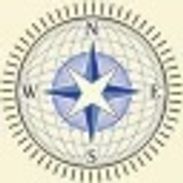THE SCENE  Giles Clarke/UNOCHA via Getty Images Giles Clarke/UNOCHA via Getty ImagesYAOUNDÉ, Cameroon — On the evening of Oct. 4, two frightened-looking middle aged men in T-shirts were forced by armed men to sit on the ground in the middle of a village square in Guzang, in North West region of Cameroon, one of two main English-speaking regions in the predominantly Francophone Central African country. The two men were alleged to have been spies for the national Francophone-led government. In a video seen by Semafor Africa, and shared widely on Cameroon social media in recent weeks, the men were lined up and executed by a firing squad in front of a small crowd of villagers. The execution has been claimed by the armed wing of the Ambazonia Governing Council (AGovC), a separatist group. That moment of almost casual, coldblooded violence earlier this month is a dark reminder of one of Africa’s low profile but seemingly intractable armed conflicts taking place in Cameroon’s English-speaking North West and South West regions, which the separatists refer to as an independent state called Ambazonia. THE NEWS The battle has also moved to Washington DC’s K Street, infamous for its expensive lobbying firms. Houston-based separatist leader Chris Anu confirmed to Semafor Africa that, on behalf of the “Federal Republic of Ambazonia,” he had contracted the lobby firm Scribe Strategies, led by veteran Washington player Joseph Szlavik, in a bid to make their case to key Africa watchers on Capitol Hill and at the United Nations. “La Republique du Cameroun [government of Cameroon] is in the habit of saying that it doesn’t know who to talk to in Ambazonia,” Anu said. “By hiring a lobbyist, we are saying to LRC that they now know who to talk to and how to reach us.” He said the separatists will be speaking with “one voice” in conducting future negotiations or referendum matters via the firm. KNOW MORE  Cameroon’s armed separatist conflict has claimed the lives of over 6,000 people, displaced 630,000 internally and a further 88,000 as refugees to next-door Nigeria. Its roots lie in Europe’s imperial past. In 1884, Germany annexed swathes of independent kingdoms in Central Africa to form a colony it named Kamerun but lost it after World War I to Britain and France which partitioned the territory. In the 1960s, some in the British territory wanted independence by forming their own state, and not by joining neighboring Nigeria or the already independent French Cameroun. However, they were not given that third option under a U.N.-organized referendum. This has bred frustration and secessionist agitations ever since. In 2016, protests against the imposition of French language officials in English-speaking schools and courts sparked protests and strike action by lawyers and teachers. But things turned violent the following year. Read Amindeh’s View and Room for Disagreement. | 









